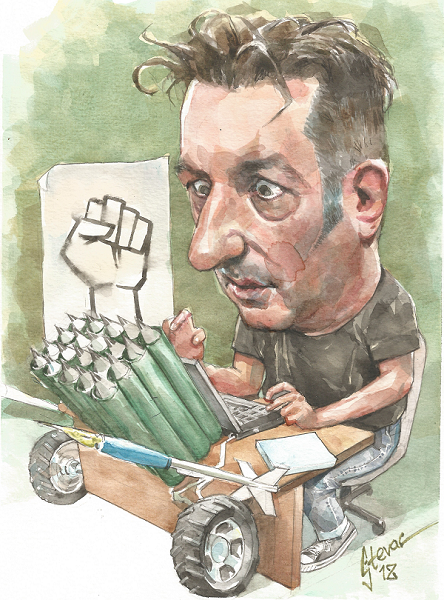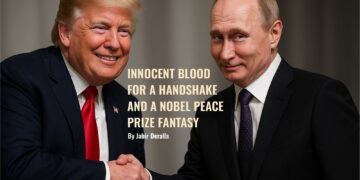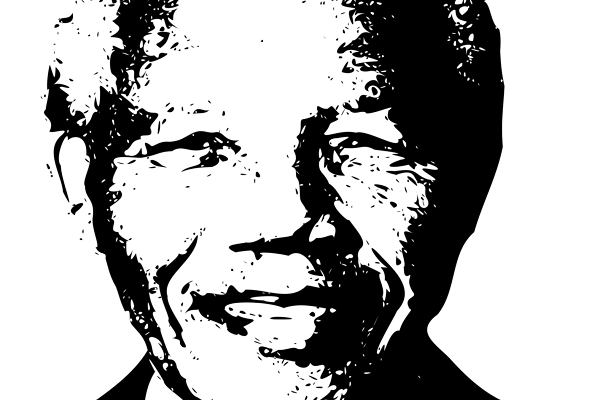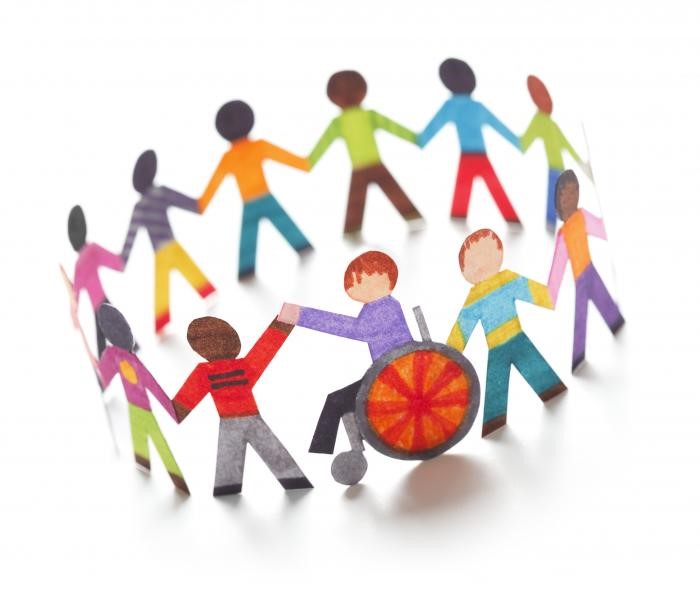Nelson Mandela, the man who the white racist regime of South Africa condemned to 27 years of prison, became a world icon of reconciliation. After coming out of the “Victor Wister” prison, where he was in the last two years of his prison sentence, after which the racist regime also fell, and he came to power, Mandela wasn’t thinking of vengeance, but of reconciliation.

Nelson Mandela and the enemies…
“If you want to make peace with your enemy, you have to work with your enemy. Then he becomes your partner” – writes Mandela in his autobiographic work titled “Long Way to Freedom”. What he said and wrote is what he did his entire life, both as a statesmen and as an activist for reconciliation in his country and in the world.
Mahatma Ghandi, Martin Luther King and Nelson Mandela are an example and an inspiration for nonviolent resistance against violent regimes, a resistance after which there was always a need for opponents to sit together on a table and to sketch the future of society. No matter how much it seems impossible, reconciliation is possible. They showed and proved this with their personal example, with their personal sacrifices and renunciations.
Macedonia and reconciliation
Mandela had been serving a difficult sentence almost just as long as Macedonia has been independent. And he found the strength in himself to think of reconciliation, and not of vengeance because he had spent the best years of his life in a prison cell, many years in solitary confinement.
Does Macedonia have the strength to overcome itself and to follow the road of peace and reconciliation? These days, after the call that Prime Minister Zaev directed to the “left and right side” in Parliament to extend a hand, it seems there may be a chance for this to happen. Certainly, I was one of the first who said “Not in my name!” – referring to the amnesty that was looming even back then, and is also up in the air now as an idea.
And now I am convinced that reconciliation as a process must not be brought in connection with amnesty, especially not of those who planned and carried out the attack in such a way that endangered the lives of all those who were in the Parliament on that disgusting April 27, 2017. But those who were victims of manipulation and pressure (through threats…), if they repent and cooperate with the investigations, should be an integral part of the process of reconciliation.
From a time bomb to regional leaders
Macedonia has a great chance to go forward. The NATO and EU integrations, through constitutional changes and implementation of the processes for improving relations with the neighbours is one part of that. But integration with the modern world, nevertheless, has to go with integration inside, in our Macedonia of ours. The concept “One society for all” must not remain just a slogan. There is already much work to be done, but the reforms must continue because only in this way the rule of law and democracy will be restored. And reconciliation! By telling the truth, rejecting violence and extending a hand. That is the road.
We have a chance, from a timed bomb, to become leaders in the region shaken by crime, discord and violence being carried out by political elites. To transform as a society and as such to ruin the plans of the little dictators on the Balkans and beyond, to Orbanistan, and even further. Just like we became known by our unity during the nonviolent resistance against the criminal N.G.
The initiative of the Balkan Gandhi (or Mandela)
The Balkan Gandhi (or Mandela) initiated the reconciliation in a crucial moment for Macedonia, but it cannot and must not stop here. Nor should it end with the sessions of the Interparty Parliamentary Group on Integration, Reforms and Reconciliation. There is hope that the spirit of reconciliation will spill out of the conference rooms, especially if we listen to Zaev’s statement on Friday (November 30).
In the meanwhile, I learn that precisely one part of the eight VMRO-DPMNE parliamentarians who supported the constitutional changes, have showed willingness to participate in overcoming conflicts between different groups and communities in society. Specific problems can be solved, including conflict situations between different political options at the local level, for example, as Zaev said. Examples and tasks can be given endlessly. For instance, we can expect for parliamentarians to contribute to reconciliation of fan groups, or for them to stand in defence of the rights of marginalized communities that are often victims of prejudice, discrimination and violence.
It would be fair and correct for us to try to give reconciliation a chance, to show that we believe in the sincerity of the politicians, at least at the beginning. That means to encourage them, to support and help them in this process, each one of us, no matter where we are in society. And, of course, to closely follow the process.
The most important thing is for the process of reconciliation, with which the Prime Minister and the parliamentary body have engaged in, to be substantive and honest. The institutions must be consulted, and to include all those who have suffered from the divisions, stigmatization, discrimination and violence that were the basic feature of the time of the regime, and after it, up to the moment when this text leaves my fingers. To hold them to their word, but to also get involved.
Each one of us.
















